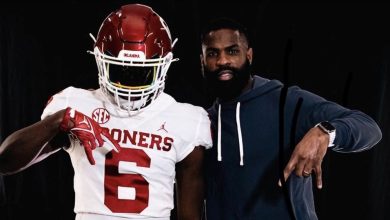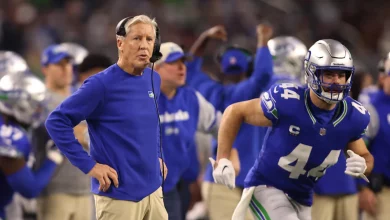The G.O.A.T and MVP are often debated, representing the greatest of all time and most valuable player, showcasing leadership, skill, and impact in their sport.

In the world of sports, few debates ignite passion and controversy as fiercely as the discussion over who deserves the title of G.O.A.T (Greatest of All Time) and who should be recognized as the MVP (Most Valuable Player). These two distinctions, while related, embody different aspects of athletic greatness—one emphasizing historical legacy and overall dominance, the other highlighting current impact and value to a team. Understanding their significance, the criteria that define them, and the ongoing debates provides a fascinating glimpse into how excellence is celebrated and scrutinized in sports culture.
The Concept of G.O.A.T: A Legacy of Greatness
Defining the G.O.A.T
The term G.O.A.T—an acronym for “Greatest of All Time”—has become a cultural phenomenon, extending beyond sports into various domains of achievement. In sports, it refers to an athlete whose career, accomplishments, influence, and consistency elevate them above all others in their sport’s history.
Criteria for G.O.A.T
While there’s no universally accepted criteria, several factors typically contribute to the G.O.A.T discussion:
- Longevity and Consistency: Sustained excellence over many seasons.
- Records and Achievements: Championships, MVP awards, statistical milestones.
- Impact and Influence: Transformative influence on the game, inspiring future generations.
- Clutch Performances: Ability to perform under pressure in crucial moments.
- Leadership and Character: Off-field leadership, sportsmanship, and character.
Historical Examples
- Basketball: Michael Jordan is often cited as the G.O.A.T for his six NBA championships, five MVP awards, and cultural impact.
- Soccer: Pelé and Diego Maradona are legendary, but Lionel Messi and Cristiano Ronaldo have dominated recent discussions.
- Tennis: Roger Federer, Rafael Nadal, and Novak Djokovic have all been considered G.O.A.Ts at different times, each with record-breaking achievements.
The Subjectivity of G.O.A.T
Despite these criteria, the G.O.A.T debate is inherently subjective. Different fans, analysts, and players prioritize achievements differently. Some emphasize individual skill, others team success, while some focus on influence or even intangibles like charisma and leadership.
The Role of MVP: Recognizing the Most Valuable Player
Understanding the MVP Award
The MVP is a seasonal award given annually to the player judged to be the most valuable to their team during a specific season. Unlike the G.O.A.T, which considers a player’s entire career, the MVP focuses on recent performance and current impact.
Criteria for MVP
While voting procedures vary across sports, common considerations include:
- Performance Metrics: Statistical dominance, efficiency, and consistency.
- Team Success: The player’s contribution to team wins and standings.
- Clutch Play: Performance in high-pressure situations.
- Leadership: Influence on teammates and team culture.
- Narrative and Intangibles: Storylines, reputation, and perceived value.
Historical Examples
- Basketball: Players like LeBron James, Stephen Curry, and Giannis Antetokounmpo have won MVPs, often reflecting their dominant seasons.
- Football: The NFL’s Most Valuable Player award recognizes players like Patrick Mahomes, Aaron Rodgers, and Tom Brady.
- Soccer: The FIFA Ballon d’Or (now replaced by The Best FIFA Men’s Player) honors the best individual performance in a calendar year.
MVP as a Reflection of the Moment
While the G.O.A.T is a career-long evaluation, the MVP celebrates the player’s peak—highlighting who was deemed most impactful during a specific season. This creates debates about whether a player’s current dominance outweighs a long-term legacy.
Comparing G.O.A.T and MVP: Different Perspectives of Greatness
Long-Term Legacy vs. Current Impact
The primary difference lies in scope:
- G.O.A.T: A cumulative assessment spanning a player’s entire career, considering sustained excellence, influence, and overall contribution.
- MVP: A snapshot of peak performance in a specific season, emphasizing current value.
Debates and Overlaps
Many athletes are both G.O.A.T and MVP contenders, but not always simultaneously. For example, Michael Jordan is often considered the G.O.A.T, with six NBA championships and multiple MVPs, but he didn’t win MVP every season he played.
Conversely, some players may dominate a season but lack the longevity or overall impact to be deemed G.O.A.T. For example, a player might win MVP in a breakout season but fall short of legendary status.
The Cultural Significance and Impact
Inspiration and Role Models
G.O.A.T athletes serve as icons, inspiring young athletes worldwide. Their dedication, work ethic, and achievements become benchmarks for excellence, shaping aspirations and motivating future generations.
Marketability and Commercial Impact
Top athletes recognized as G.O.A.Ts or MVPs often become global brands, influencing endorsements, merchandise, and media. Their presence boosts league popularity and economic growth.
Narratives and Legacy Building
Sports narratives often revolve around the G.O.A.T debate. These discussions shape fan identities, rivalries, and historical record-keeping. They foster engaging conversations that transcend statistics, touching on cultural and emotional elements.
Controversies and Challenges in Determining the G.O.A.T and MVP
Subjectivity and Bias
Debates are often influenced by personal biases, regional loyalties, or differing valuation of achievements. For example, some may prioritize championships over individual stats or vice versa.
Changing Eras and Contexts
Different eras have different competitive landscapes, rules, and playing styles, making direct comparisons challenging. Comparing players from the 1960s to those today involves contextual adjustments.
Statistical Discrepancies
Advances in sports science, analytics, and training have altered performance benchmarks. This complicates direct comparisons across generations.
Cultural and Social Factors
Athletes’ influence extends beyond their sport, impacting social issues, activism, and cultural identity. Recognizing this broader impact can influence G.O.A.T discussions.
Notable G.O.A.T and MVP Cases in Various Sports
Basketball
- G.O.A.T: Michael Jordan, LeBron James, Kareem Abdul-Jabbar, Magic Johnson.
- MVPs: LeBron James, Giannis Antetokounmpo, Stephen Curry.
Soccer
- G.O.A.T: Pelé, Maradona, Messi, Ronaldo.
- Ballon d’Or Winners: Messi (7), Ronaldo (5), others with fewer awards but significant impact.
American Football
- G.O.A.T: Tom Brady, Jerry Rice, Jim Brown.
- MVPs: Patrick Mahomes, Aaron Rodgers, Steve Young.
Tennis
- G.O.A.T: Federer, Nadal, Djokovic.
- Yearly Awards: Various, based on season performance.
The Future of G.O.A.T and MVP Discussions
Advancements in analytics, data collection, and global connectivity continue to evolve how greatness is measured. Social media amplifies athlete narratives, making debates more accessible and widespread.
Emerging stars, changing rules, and new sporting formats will influence future G.O.A.T and MVP conversations, ensuring these debates remain lively and dynamic.
Celebrating Excellence and Impact
The concepts of G.O.A.T and MVP encapsulate the essence of athletic excellence—long-term mastery and current impact, respectively. Both serve to honor athletes who elevate their sport, inspire fans, and leave indelible legacies.
While debates will persist, what remains clear is that these titles celebrate the pinnacle of human achievement in sports. They remind us that greatness is multifaceted—combining talent, dedication, influence, and a spirit of competition that pushes the boundaries of what is possible.
In the end, whether as the timeless G.O.A.T or the reigning MVP, these athletes exemplify the extraordinary potential of human performance, inspiring us all to strive for greatness in our pursuits.









